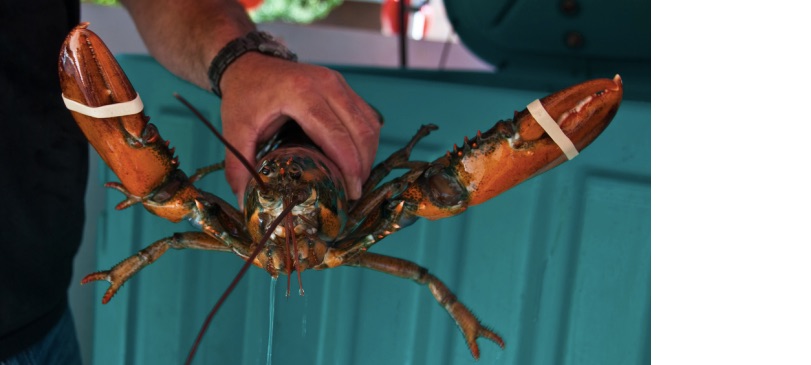
Lazy Lauren
February 18, 2018
What a High Social Score Can Get You in China
February 20, 2018After 32 North American lobsters were found in Scandinavian waters, Sweden claimed it was being invaded by an alien species. They said local lobsters could produce sterile offspring if they mated with the invaders. They also worried that the “surlier” North Americans could wipe out the locals.
So, they took their case to the EU Committee on Invasive Alien Species. Their goal? To ban North American lobster exports.
The Lobster Story
The color of a lobster can tell you where it came from. Although European female lobsters that live far from shore are purple, a European lobster is usually black. Since the North American lobster is reddish or greenish, biologists knew they had some visitors. They theorized that the lobsters had arrived by air, heading for the EU or maybe Dubai. But someone, for some reason, had placed them in the water.
The Swedish biologists called their visitors an invasive alien species. Responding, New England and Canada (and Swedish chefs) said the benefits (and the taste) of Maine lobsters far exceeded their potential harm. A lot of money also was at stake. For Maine the cost would have been 20% of their lobster exports worth close to $150 million.
In 2016, the EU said for now, the exports could continue.
Our Bottom Line: Precautionary Principle or Cost/Benefit Analysis
The EU Committee on Invasive Alien Species had two analytic paths it could have taken.
Selected by environmentalists, the precautionary principle said let’s be careful. We outlawed genetically modified crops from the EU not knowing for sure what harm they would do. We can use the same reasoning for North American lobsters.
The other possibility is an economic favorite. Using a cost/benefit approach, the scale tilts toward continuing to accept North American lobster exports. The dollars were huge and their taste was preferred. And no one could be sure if they actually would eliminate the Swedish lobster.
We should add though that all of this might be an animals rights protest. People who objected to boiling lobsters alive could have been stirring up a trade controversy. As the executive director of the Maine Lobster Dealers Association said, “It’s a lobster liberation thing.”
But it might have made a difference. Swiss lawmakers responded during January (2018) by proclaiming, “Aquatic species must always be kept in their natural environment. Crustaceans must now be stunned before killing them.”
My sources and more: Two highly recommendable sources for the story of the lobster invasion were Outside/In’s podcast and this WGBH article. However, if you want more facts, then FT is a possibility as is this article about the new Swiss proclamation.
![econlifelogotrademarkedwebsitelogo[1]](/wp-content/uploads/2024/05/econlifelogotrademarkedwebsitelogo1.png#100878)




